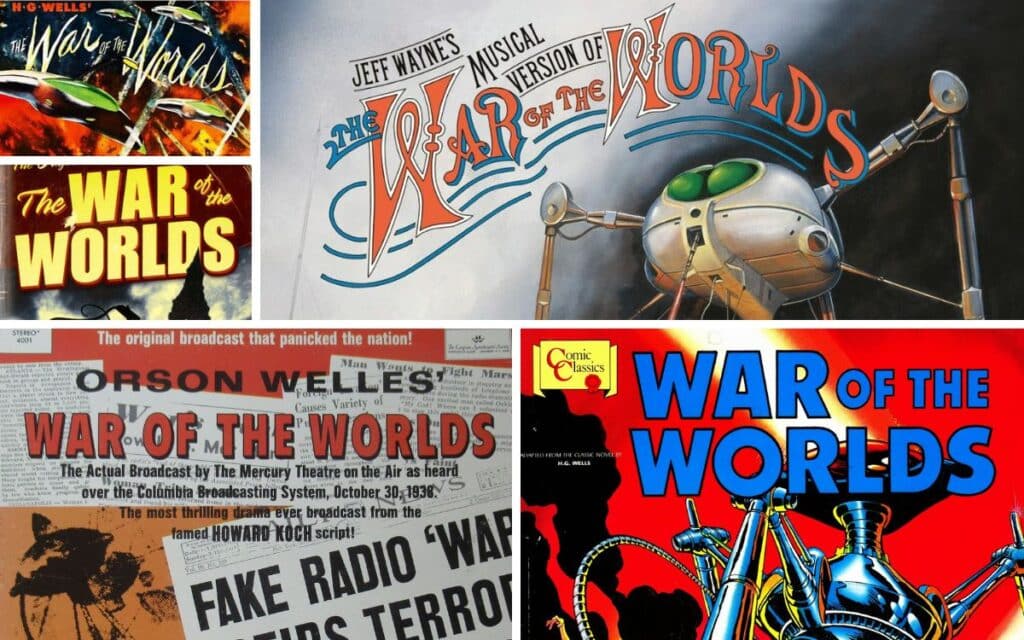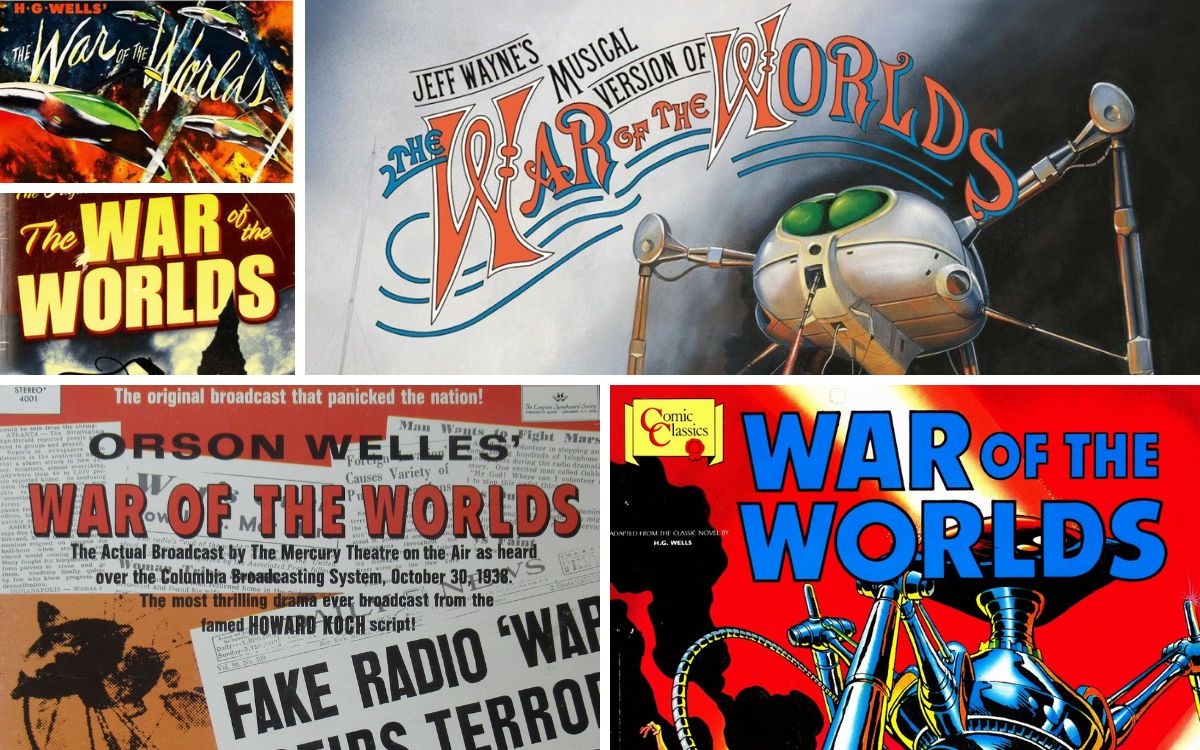H.G. Well’s prophetic genius was never more evident than when he wrote The War of the Worlds, writes PETULA MITCHELL

A Look Back At The War of the Worlds
When it comes to the origins of science fiction, it can be argued that H.G. Wells was the father of the genre.
Although his work must inevitably be viewed through the lens of a man writing at the end of the 19th and early half of the 20th century, and the cultural norms of the time, it shows the astonishing imagination of a creative genius.
The world he lived in was still dominated by horse drawn vehicles. The first flight of the Wright Brothers didn’t happen until five years after the publication of War of the Worlds in 1898.
Wells had worked on the story for three years previous to this and it had been serialised in magazines on both sides of the Atlantic in 1897. So for a man to gaze up into the night sky and contemplate interplanetary flight was, one would imagine, uncommon.
It may seem fanciful to us, with the advantages of many years of Martian exploration by satellites and rovers, to think this cold, bleak planet could hold life.
However, it was part of mainstream astronomy up until the 1950s to surmise that Mars may indeed have vegetation, and by extension, some form of life. The Victorians were aware of the Martian ‘canals’ visible through their telescopes and many theories have abounded concerning their origins.
So against this background of science and supposition, Wells’ story, The War of the World, was crafted.
The unsuspecting inhabitants of Earth go about their daily lives oblivious to the coming storm.
“Yet across the gulf of space, minds that are to our minds as ours are to those of the beasts that perish, intellects vast and cool and unsympathetic, regarded this earth with envious eyes, and slowly and surely drew their plans against us.”
The first indication that anything out of the ordinary was happening came when the narrator , who remains anonymous throughout the story, discusses the appearance of something flaring on the surface of Mars, with a friend who is an amateur astronomer.
The subsequent landing of the Martian spaceships on the heath land of Surrey still gives this reader an uncomfortable feeling.
Living in the South East of England and knowing the towns and landmarks Wells mentions, adds to the disturbing nature of the unfolding action. It is the extraordinary, happening in ordinary surroundings.
The drama and destruction unfolding in the most genteel of places. The violation of the civilised surroundings, ordinary villages and towns and respectable middle class houses.
This is where the enduring power of the story comes from.
The Martians meanwhile, escape from the confines of their spacecraft to build the huge three legged war machines that wreak havoc across the landscape. Artillery has little effect on them and they soon defeat the British soldiers and their best state of the art weapons.
The heat ray that emanates from the advancing tripods destroys everything in their path as they travel towards London.
“This isn’t a war… it never was a war, any more than there is a war between men and ants!”
The narrator, separated from his wife, undergoes great trauma and deprivation. At one point he is holed up in a semi demolished house right under the nose of the alien invaders. W
hile trapped there he gets to witness how the Martians feed by injecting human blood directly into their bodies. They are harvesting humankind. He also relates the story of how his brother is a refugee ahead of the relentless Martian progress and becomes embroiled in an endless stream of refugees heading up the Great North Road.
Some of the scenes are comparable with events that went on to happen in the 20th century and war torn countries in more recent times.
So what can defeat these creatures with superior technology as they gobble up humanity and leave a trail of red weed in their wake?
They did not realise that when they breathed the air and ingested human blood, they were also taking on the bacteria and viruses that the population of Earth harboured. With no immunity to the novel pathogens they soon succumb to human diseases.
“The Martians- dead! …slain, after all man’s devices had failed, by the humblest things that God, in his wisdom, has put upon this earth.”
At the end of the book, life slowly returns to an uneasy normal. On the surface people rebuild their houses and lives, but there is a nagging feeling that nothing will ever be the same.
At this point Wells describes with the narrator’s voice things that we would recognise today as PTSD.
But again he seemed to be ahead of his time here. Soldiers had no doubt returned from war with it since the first battles mankind fought, but it has taken until recent history to recognise this. Shell shock, battle fatigue, mental exhaustion have all been used as terms to describe the same thing.
In the words of this book, “The fear I felt was no rational fear, but a panic terror not only of the Martians but of the dusk and stillness all about me. Such an extraordinary effect in unmanning me it had that I ran weeping silently as a child might do. Once I had turned I dared not look back.”
The War Of The Worlds In Popular Culture
This story of invasion has been influential in popular culture since its publication in last decades of the 19th century.
Most famously the 1938 radio adaptation by Orson Wells, broadcast on Halloween that year, was so vivid and realistic that many people believed it was really happening. The radio broadcast happened during Wells’ lifetime, as he passed away in 1946.
This in turn lead to the 1975 film The Night That Panicked America dramatising the events of that night.
In 1953 the first film version of War of the Worlds was made, directed by Byron Haskins and there was a remake in 2005 with Steven Spielberg at the helm.
The 1978 album War of the Worlds by Jeff Wayne is a musical take on the story. Narrated memorably by the late and great Richard Burton it contains songs that were hit records and starred singers including David Essex, Julie Covington, Justin Hayward and Phil Lynott. It remains popular as a live show to this day.
126 years after publication the story still has the power to not only entertain us, but also to make us recognise the fragility of humanity.
Tell us your thoughts on H.G. Well’s The War of the World in the comments section below!



